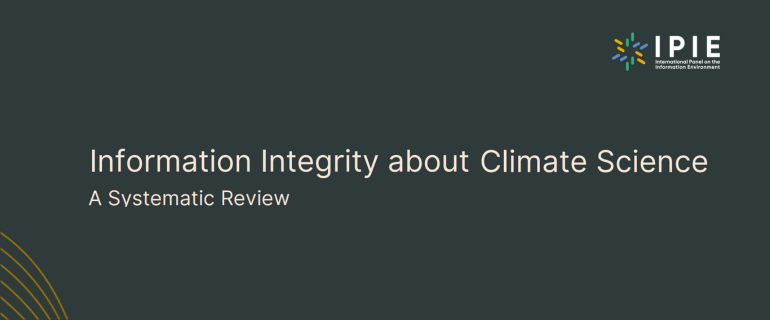According to a sweeping new 2025 report by the International Panel on the Information Environment (IPIE), the climate crisis is being dangerously accelerated by a flood of misinformation. Further orchestrated by fossil fuel interests, rightwing political actors, and nation states, a recent article for the Guardian (Carrington, 2025) outlines how the IPIE’s review of 300 studies finds that misinformation is not only creating doubt about the climate crisis, but it is also actively obstructing efforts to address it.
The IPIE report presents the multifaceted nature of climate misinformation, ranging from subtle greenwashing to conspiracy theories. These actors who are amplifying false information are also targeting key decision makers, with what researchers call “conspiratorial” efforts to derail climate policy from within. Beyond fossil fuel companies, the report identifies other industries complicit in the spread of misinformation including animal agriculture, tourism, aviation, and fast food. Dominant political actors are also involved, where figures such as U.S. President Trump and rightwing populist parties in Europe, consistently amplifying denialist rhetoric and conspiracy theories.
With just five years left to halve global emissions and until 2050 to reach net zero, misinformation is muddying public discourse, polarizing society, and undermining trust in institutions. The report calls for the implementation of a multi-prolonged response comprising: stronger regulations on social media, greater transparency by fossil fuel companies using required standardized emissions disclosures, long-term climate literacy efforts, and legal action through the establishment of broader, systemic legal frameworks.
Despite growing efforts to combat climate misinformation, the article warns that much of the existing research is limited to the English-speaking world, with huge gaps in our understanding of how climate misinformation is occurring across other international continents. The findings of the IPIE report underscore the urgency of the dual crisis at hand - that of environmental degradation and climate misinformation.
In order to tackle climate misinformation and the evolving tactics of denial and delay, major investments in global climate communication research is required. This includes expanding research beyond the Global North, understanding regional misinformation contexts, and developing evidence-based strategies to build public resilience worldwide.
Written by Sabrina Careri, for Ann Dale.
- Log in to post comments

CRC Comments